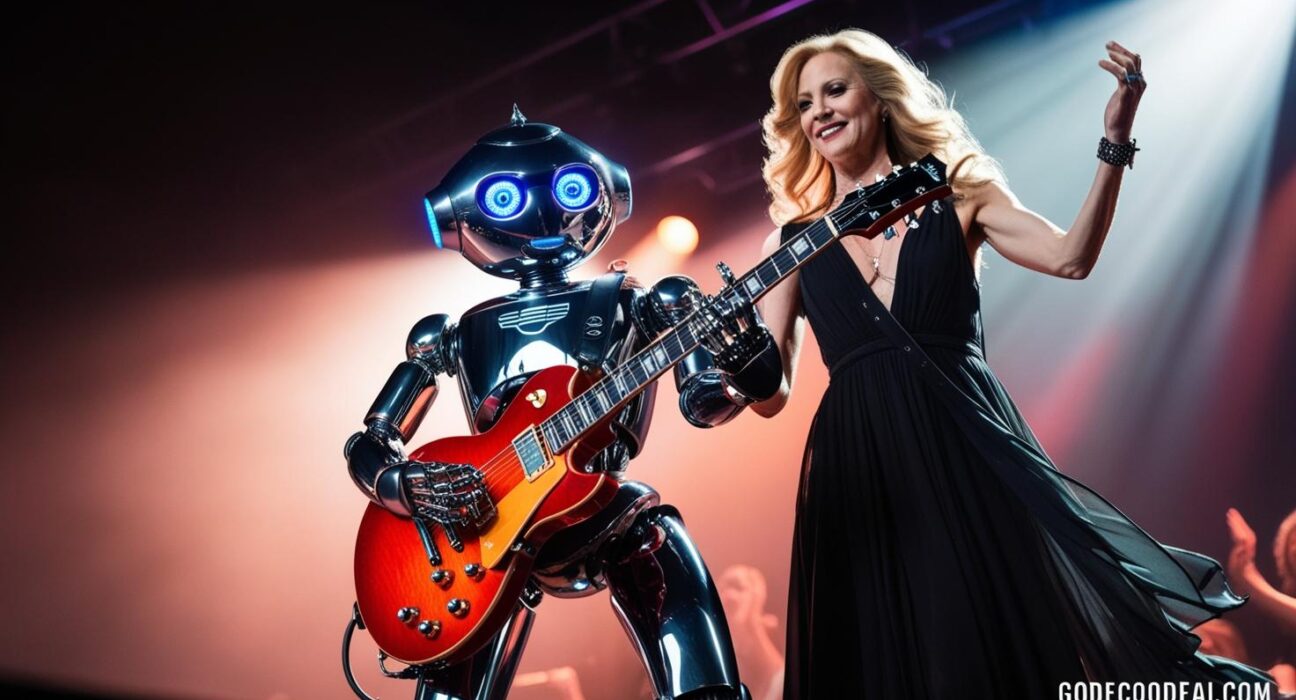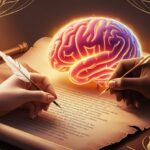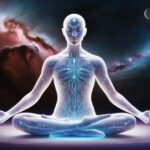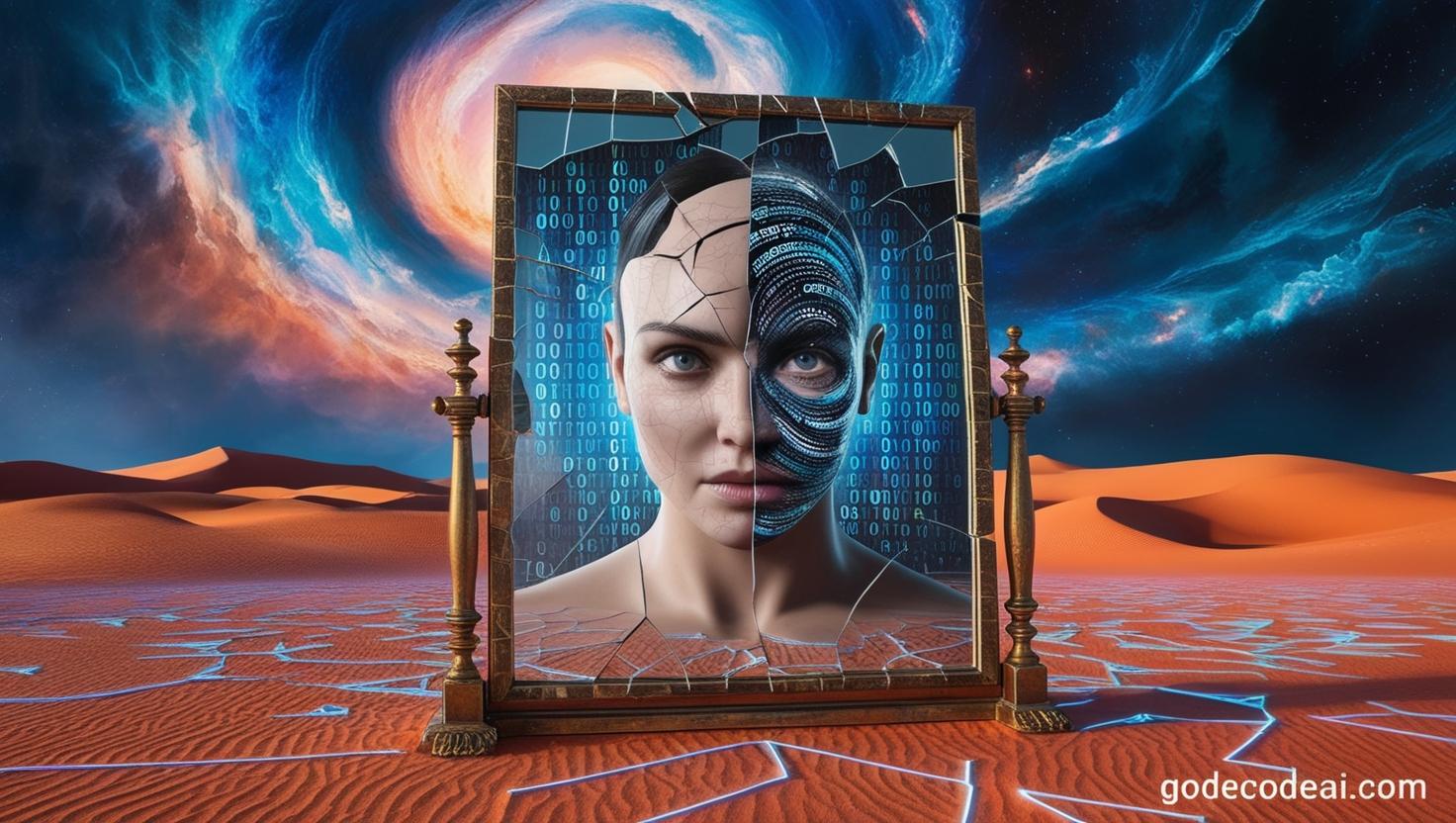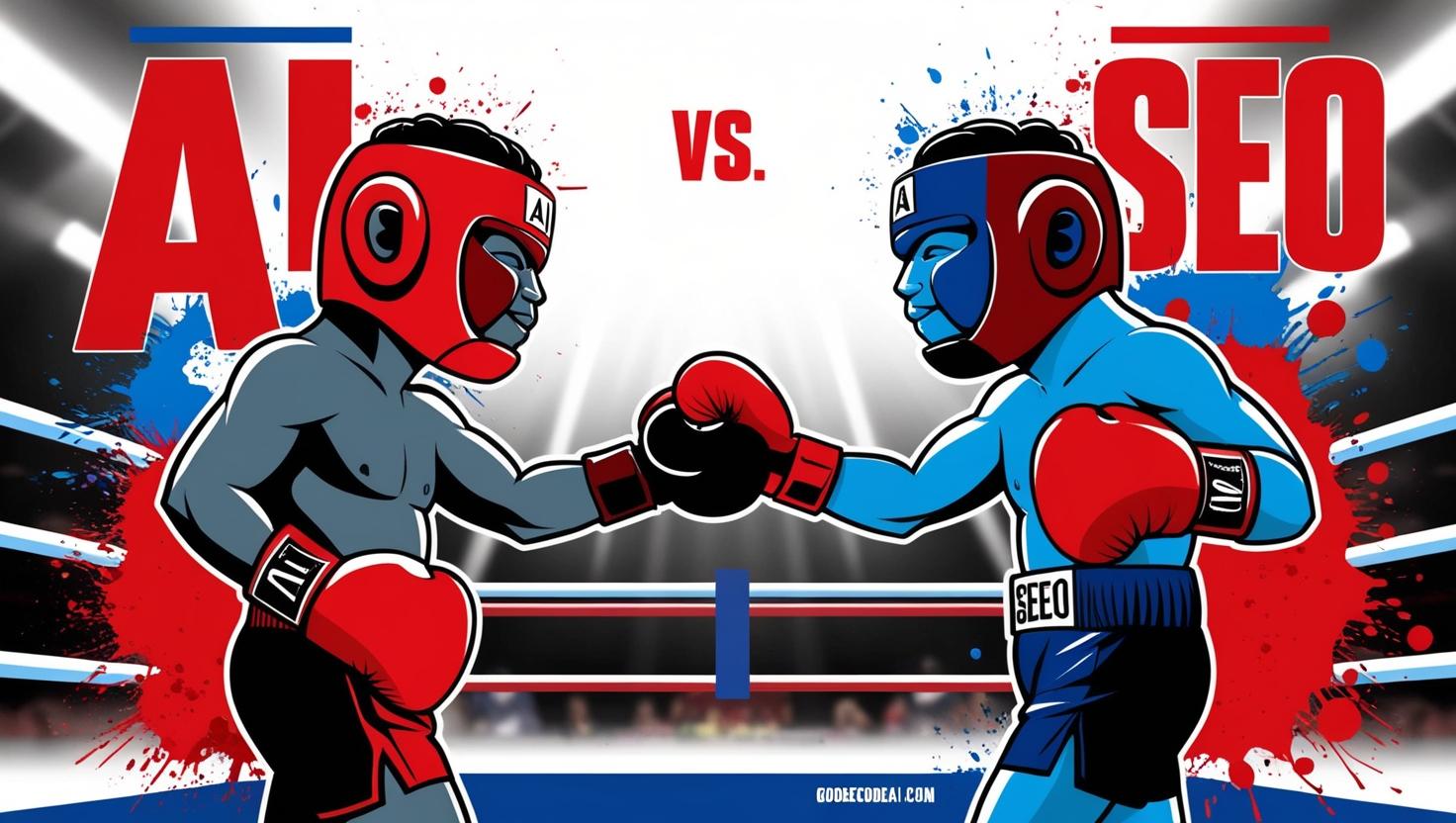The Sound of the Future—Or the End of Music?
AI-generated music is no longer a futuristic concept.
It’s here.
With platforms like OpenAI’s Jukedeck, Aiva, and Amper Music, anyone can create music in minutes—no instruments, no training, no problem.
But as these tools advance, one big question looms:
Can AI really replace artists in the music industry?
Or is it just a creative assistant, amplifying human genius rather than replacing it?
In this article, we’ll explore the boundaries of AI in music, the potential it holds, and why AI will never fully replace the soul of a human artist.
2. What Can AI Do in Music?
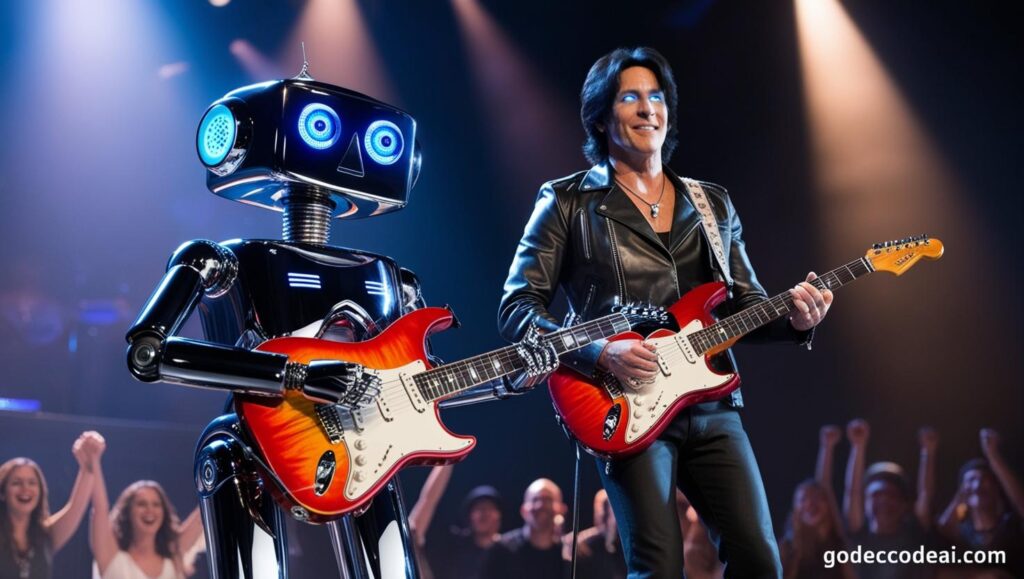
Let’s start with the basics.
What exactly can AI-generated music achieve today?
✅ Composing Original Tracks
- AI can create full orchestral compositions, electronic beats, or even jazz improvisations.
- Programs like Aiva are capable of generating classical compositions that mimic the style of Mozart or Beethoven.
- Amper Music lets users generate royalty-free music in seconds, tailored to a specific mood or genre.
✅ Remixing and Covering Songs
- AI can remix popular tracks or create covers in different styles, offering endless possibilities for creative exploration.
- Tools like JukeBox (by OpenAI) can generate music in the style of artists like The Beatles or Tupac, blurring the lines between tribute and innovation.
✅ Personalized Soundtracks
- AI can analyze your preferences and create music that perfectly matches your taste.
- Platforms like Endlesss allow for collaborative music-making, where AI plays a key role in real-time creation.
AI can generate music at scale, tailor it to the listener, and mimic virtually any genre. It’s a powerful tool that redefines how we think about music creation.
3. The Rise of AI Musicians: Not Just Tools, But Creative Partners
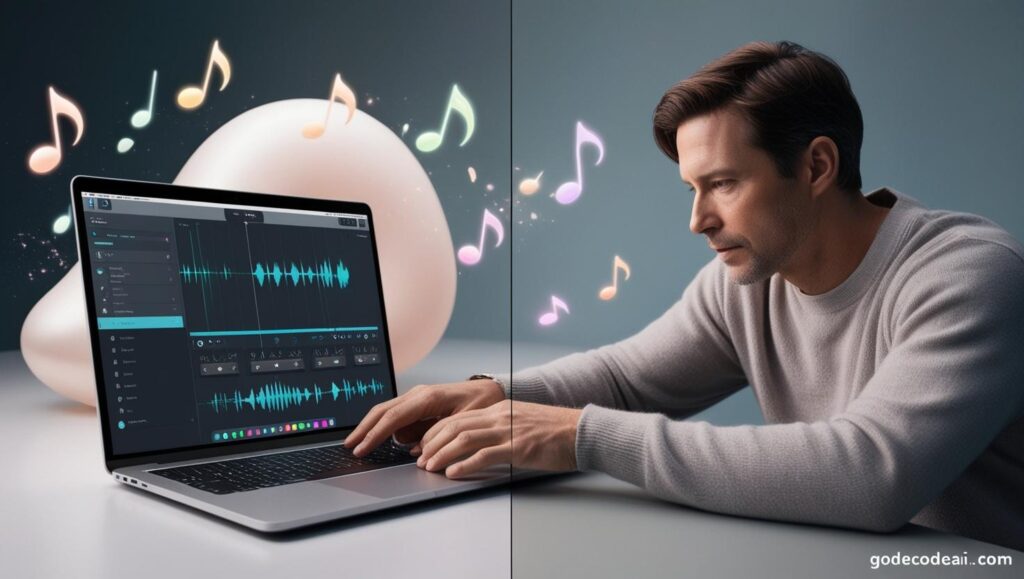
The question of whether AI will replace musicians comes down to this:
Does AI possess creativity?
At first glance, the answer seems obvious: No.
AI is not conscious, doesn’t feel, and doesn’t have a “soul.”
But here’s the twist: creativity is not just about feeling—it’s about pattern recognition, experimentation, and innovation.
AI can break down a vast array of data—analyzing rhythms, melodies, and harmonies from across genres—and generate something unique. This ability makes AI less a replacement and more a co-creator.
Just as digital audio workstations (DAWs) revolutionized music production in the 80s, AI is poised to democratize music creation today.
Rather than taking away jobs, AI empowers musicians—from hobbyists to professionals—to explore new realms of creativity. The key here is collaboration. A musician can use AI as an instrument, not as the player.
4. Why AI Will Never Replace Human Artists
Now, let’s be clear: AI cannot—and will not—replace human musicians. Here’s why:
🧠 Emotional Connection
Music isn’t just a set of notes; it’s a form of expression.
Artists pour their experiences, emotions, and unique perspectives into their work. This emotional depth is something AI simply can’t replicate.
AI can analyze how a particular melody might make a listener feel, but it can never “feel” the way a human does. The soul of a song comes from human pain, joy, love, and chaos—experiences AI will never have.
🎤 Originality and Authenticity
AI can create “original” music, but it is limited to patterns based on existing works.
Even when an AI composition is new, it’s essentially built from the data fed to it. Human artists, on the other hand, push boundaries and break conventions in ways AI can’t predict.
Authenticity in art is born from life experiences, and while AI might help you create a song that sounds like it came from a legendary artist, it won’t bring the raw authenticity that a human artist injects into their work.
🎶 Cultural Context and Storytelling
Music tells a story—whether it’s about love, revolution, or existential fear. Human artists create songs that reflect their cultural, political, and personal contexts.
AI can’t capture the intricacies of living in the world as a human—the subtle layers of social, political, and historical influences that shape the way we experience music.
5. What AI Brings to the Table: Enhancing, Not Replacing
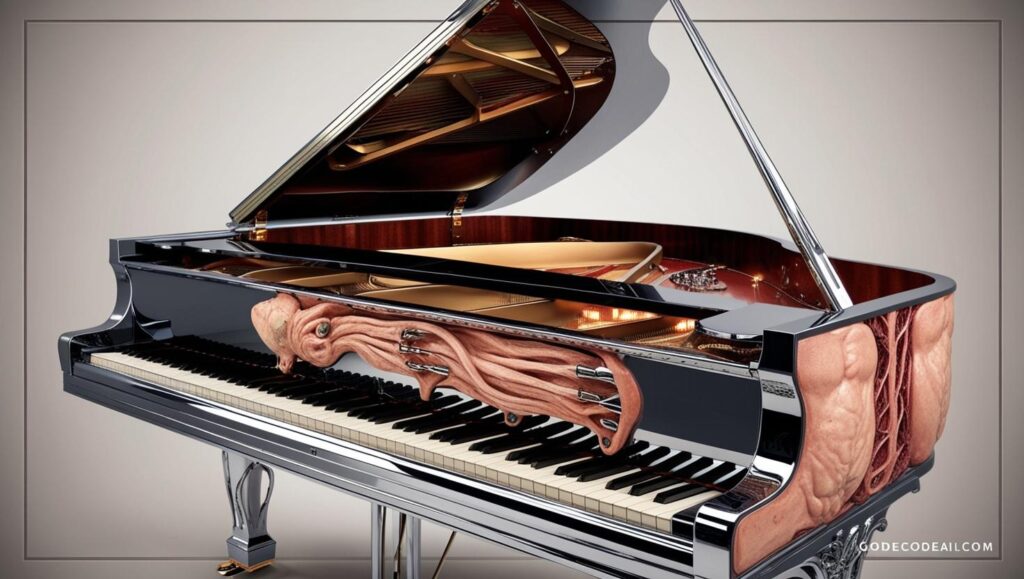
Rather than taking the role of the artist, AI is more like a musical assistant that enhances the process:
- Collaborative tool for composers: Helping musicians overcome creative blocks by suggesting melodies or chord progressions.
- Music production on-demand: Generating background scores or jingles quickly for businesses and creators who need music fast.
- Enhancing creativity: AI can suggest new styles, instruments, or arrangements that musicians might not have considered, pushing them into new creative territories.
In other words, AI isn’t replacing the artist. It’s supercharging their capabilities.
6. The Future of AI and Music: Co-Creation, Not Competition
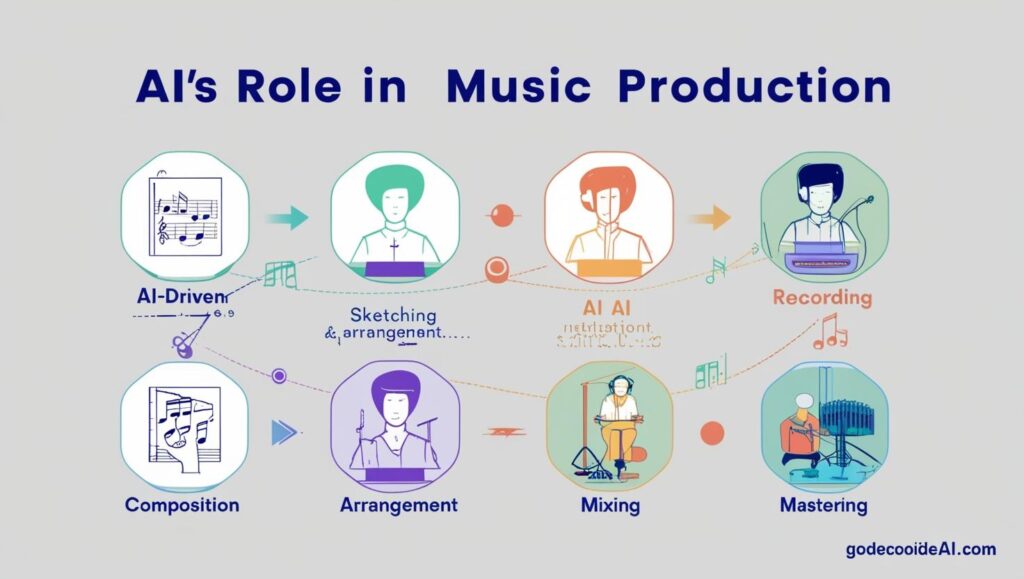
AI will evolve to become a seamless part of the creative process—helping artists achieve their visions faster, more efficiently, and with greater possibilities.
Here’s where things are heading:
- Personalized music experiences for individual listeners.
- Generative soundtracks for video games, movies, and virtual worlds, where the music adapts to the environment.
- AI-assisted live performances, where AI can respond in real-time to an artist’s improvisation.
Musicians will use AI in the same way they use digital tools—as an extension of their creative abilities, not a replacement for their artistic vision.
7. FAQs
Q: Can AI really compose a hit song?
AI can generate melodies that fit the current trends, but it can’t create a song with the cultural impact that an artist like Beyoncé, Kendrick Lamar, or Taylor Swift has. AI lacks the emotional connection that resonates with audiences on a deeper level.
Q: Will AI take jobs away from musicians?
AI will automate certain parts of the music production process, but it won’t replace musicians. It will create new opportunities for creators who know how to use AI to enhance their craft.
Q: What about the future of AI-generated music in the mainstream?
We might see more AI-generated tracks in commercials, background music, and video games, but the core of the music industry—live performances, albums, and personal expression—will still rely on human artists.
Q: Are there any ethical concerns with AI-generated music?
Yes. Issues like copyright infringement (AI creating music too similar to existing works) and fair compensation for artists whose work contributes to AI training datasets will need to be addressed.
8. Final Word: AI and Music Are Partners, Not Rivals
The idea that AI will replace musicians is a misconception. The future of music is about collaboration—between human artists and AI tools.
AI can generate music.
But only humans can create art.
The real power of AI in music lies in its potential to empower artists—to free them from technical constraints, inspire new ideas, and open up new creative possibilities. In the end, it’s the artist’s vision that gives music its meaning, not the tool they use.



